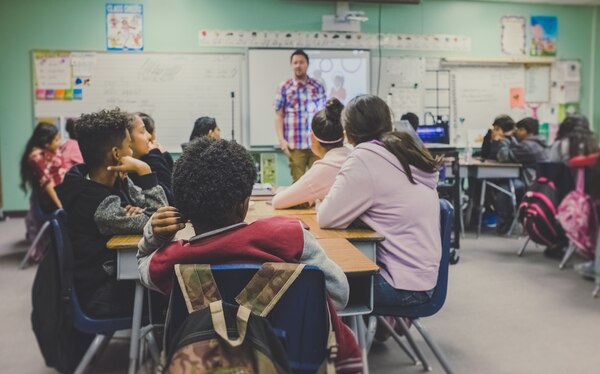3 Key Concepts Your Child Should Read Before Starting High School Chemistry
You don’t have to be a Breaking Bad fan to know that chemistry is a fascinating subject. Yes, some aspects can be a bit dry, but it’s a subject that answers many of life’s greatest mysteries. It can also help answer so many questions we often ask ourselves.
How are fireworks able to create such varied colors? Why does Coca-Cola fizz when you add mentos? Why do we cry when we cut onions?
All these questions and more can be answered by chemistry. That said, it’s not all fun and games. High school chemistry can be challenging, and it’s important that your child is prepared for it.
In this article, we will explore some of the fundamental concepts that your child should research before high school.
1. Read Up On Atoms and Molecules
Most middle school kids are aware that atoms form the building blocks of our universe. However, high school is going to go into this topic in greater detail. Your child will need to start learning how atoms are organized. The atomic structure, protons, neutrons, and electrons are all going to be explored extensively.
In addition, chemical, covalent, and ionic bonding are topics that are worth looking up. Molecular mass is a subject that’s also going to be looked at often. Molecular mass, or weight, is a fundamental concept in chemistry, and pre-learning about it can be extremely helpful.
For instance, high school students are sometimes assigned problems related to calculating the number of atoms in a molecule. If the question deals with chlorine, they may be asked to “calculate the FeCl3 molar mass.”
These questions can stump new high school students, but if your child has done some research, it should be easy. Give your child an edge by getting them a head start on difficult topics. Beyond just reading, consider hiring an experienced GCSE Chemistry tutor for personalized guidance and support. Professional tutors can help reinforce foundational knowledge and assist with problem-solving techniques.
2. The Different Types of Chemical Reactions
The subject of reactions is at the heart of chemistry. Your kid should read up on the different types of reactions as soon as possible. Having a basic grasp of the differences between exothermic and endothermic reactions will come in handy. These are topics that are highly likely to feature in lab work or on tests.
Similarly, reading up on how synthesis, decomposition, combustion, and displacement reactions work will be essential. Aspects like reaction rates, along with the factors that affect them, are commonly studied in high school. This would include aspects like temperature, surface area, concentration, catalysts, and the roles they play.
3. Solutions and Their Different States
Learning about solutions is also going to be critical. Thankfully, this is an interesting subject. Your child will have a lot of fun learning about the principles and rules related to solutions. Did you know that solutions can be liquid, solid, or gas? Most people think of solutions as liquid, but this is not true. Steel, for instance, is an example of a solid solution.
Key aspects to read up on would be the concepts of concentration, dilution, saturation, and solubility rules. A thorough understanding of solutions can be invaluable if your child decides to go into chemical engineering, healthcare, or research.

Where to Find Reliable Sources of Information To Read Up On?
Thankfully, there are many resources available today that can help your child. While we have covered some of the most common high school topics, you should do your own research as well. Contact your school or the teacher that your child will be learning under and request reading recommendations.
With that done, you can find information more easily. The school library is a good place to start, but don’t limit it to that. There are hundreds, if not thousands, of great websites that are specifically designed to coach young kids. At the same time, remember that coaching is a massive industry, and not all institutes are equal.
Statistics show that the global market size for online coaching was valued at over $2.19 billion last year. A lot of institutions are in it for the money, so do your research.
From more reputable sources, you should be able to find workbooks and practice sheets that can be extremely handy. Proprep notes that workbooks are great at testing your knowledge and maximizing your learning.
The questions in them are often open-ended and will encourage your child to think critically. If you are feeling particularly ambitious, you can sign your child up for one of the many online chemistry courses.
Interestingly, university websites often have great resources, even for younger learners. It can be worth looking up some of them, as they tend to be free. Lastly, you can find tons of great tutorials on YouTube; just ensure the channel knows what they are talking about.
Conclusion
While it’s great to take an active interest in your child’s education and encourage them, do so with tact. Children today deal with pressure from multiple sources. The pressure to be competitive in school while also needing to fit in and be cool is intense.
Guide them to the right resources, but avoid becoming a helicopter parent. Trust yourself that you have raised your child well enough that they understand the importance of adequate preparation.





 Explore the Safe Search Engine -
Explore the Safe Search Engine -